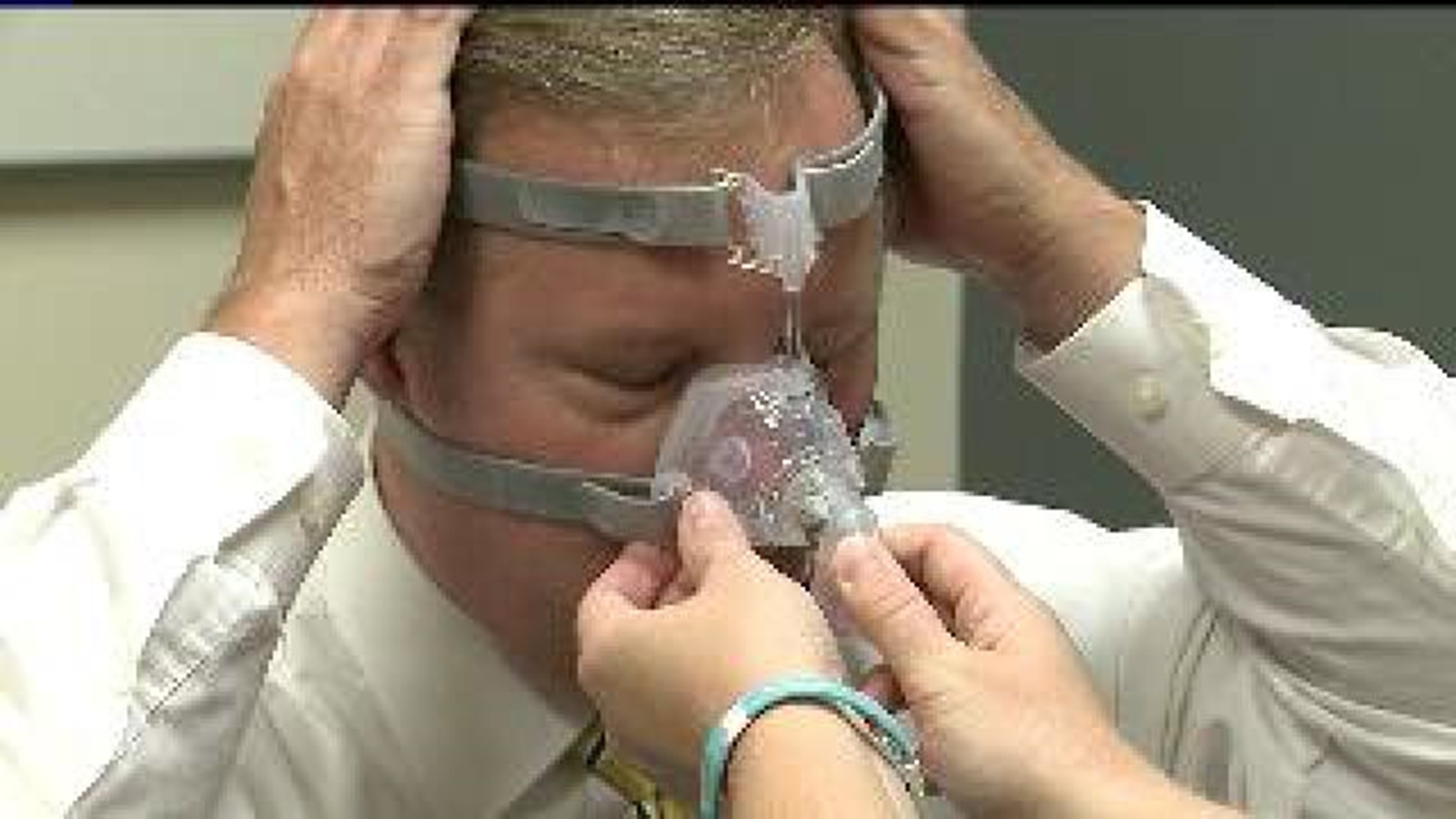A mask is helping millions of people get a better night's sleep.
I now hope it will do the same for me.
The diagnosis I received is being retold to thousands of other patients in examining rooms every day: I have sleep apnea.
It's nothing new: sleep apnea has been a problem for years.
"How did we, as a medical world, take so long to figure this out?" asks Dr. Stephen Rasmus, a neurologist who is the medical director of the Genesis Medical Center's Sleep Disorders Center in Davenport.
I've just been diagnosed with sleep apnea after an overnight test at the Sleep Disorders Center.
I stopped breathing an average of 28 times an hour and that's putting pressure on other parts of my body.
"When you come up for a breath, your blood pressure comes up, your heart rate goes up," says Dr. Rasmus.
"It increases your risk of heart attack, stroke, high blood pressure, cardiac arrythmias, irregular heart beats."
But years ago that wasn't what most people thought.
"It was always the brunt of jokes," says Vicki Loving, manager of the Genesis Sleep Center.
That was the case just a few years ago when Joe Kehoe got the same diagnosis I got.
"I though maybe I was unusual, I thought, 'Geez, this sounds serious. Maybe I ought to do something'," says Kehoe.
Joe was diagnosed with sleep apnea just eight years ago but in the world of sleep studies that seems like one hundred years.
"It just wasn't on people's radar before," says Dr. Rasmus.
Joe's working with Dr. Rasmus to deal with his symptoms by using a CPAP (continuous positive airway pressure) machine that gives a constant flow of air into his lungs through the night.
"I mean it was night and day," says Kehoe.
Joe, who teaches marketing classes at St. Ambrose University, says the eight years since his diagnosis and treatment have changed his life.
"I think I've been more efficient, getting more out of the day due to sleeping better, maybe having more energy."
And that my hope as well as I meet with Alyssa.
"Just this little machine is taking all the work off of your heart by keeping the oxygen level where it should be," says Alyssa Barkalow from Genesis Medical Center's Home Medical Equipment center in Davenport.
I'm being fitted for a CPAP machine, a nasal mask that gives me continuous flow of room air.
Today I need to find out what type of mask I prefer: so-called pillows that are tips that go in the nose or a full nasal mask that covers my entire nose.
Once it's on, it's time to hit me with the air pressure.
A high tech blower will now be part of my nightly ritual to keep my airway open.
"You look very masculine with that on," Alyssa tries to reassure me.
Masculine indeed, much like a fighter pilot.
But other people might shy away from using a CPAP out of fear that it will keep them awake rather than help them sleep.
Don't tell that to Joe Kehoe.
"Anything that might prevent some type of future debilitating health issue is something you ought to deal with."
And Joe says he sleeps better and feels healthier.
And there's another benefit many people don't consider.
Once you treat your own sleep disorder, you often help the ones you love the most. That's especially true for your sleep partner.
"We thought it would benefit me, I think it has benefited her too," Kehoe says of his wife Ana. "For sure, I think she sleeps better."

